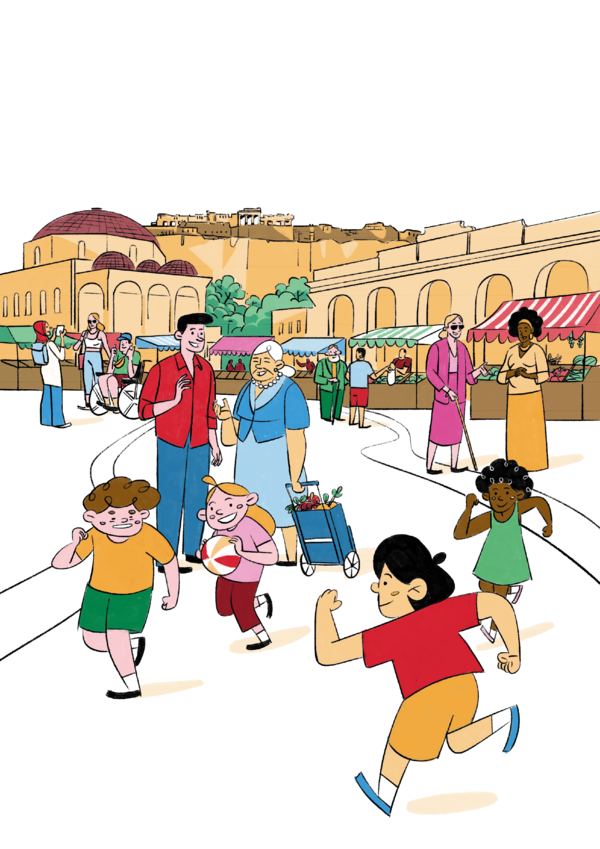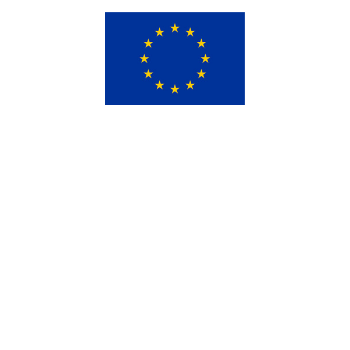DI Greece: Technical Support on deinstitutionalisation (DI) process in Greece

Across the European Union, hundreds of thousands of persons with disabilities, persons with mental health problems, older people and children live in segregated institutions. These were originally created to provide care, food and shelter, but proved to be harmful to their quality of life and participation in the community and wider society.
Greece is among the Member States in which the European Commission identified the need for deinstitutionalisation (DI) reforms to create support systems in the community.
The Technical Support on deinstitutionalisation (DI) process in Greece project aims to provide assistance to the Greek Ministry of Labour and Social Affairs (MoLSA) in:
- Completing the DI national Strategy, Roadmap and Action Plan methodologies and procedures enable the effective implementation of the deinstitutionalisation process;
- Defining and implementing processes and methodologies to run and manage the DI programme;
- Creating tools for a clear communication with individuals and key stakeholders involved in the deinstitutionalisation process allows to have adequate support structures in place in the community;
- Developing and providing training programmes to support the DI process for staff and managers have the skills and knowledge to implement the deinstitutionalisation process.
Funding
This project is funded by the European Union via the Structural Reform Support Programme and implemented in co-operation with the European Commission’s Directorate-General for Structural Reform Support.
Grant agreement number: SRSS/S2019/02
Results:
Component 1: Development of a roadmap and action plan
- Strategic review of the Greek social care system EN GR
- National DI strategy EN GR
- Roadmap for the implementation of the DI strategy EN GR
- Action plan accompanying the DI strategy EN GR
- Roadmap for the consultation with relevant stakeholders EN GR
Component 2: Development of methodologies and procedures for DI
- Needs assessment protocol developed and adapted to Greek context EN GR
- Mapping exercise and analysis/review of support services and procedures implemented in the community in GreeceEN GR
- Factsheets on best practices on community-based living
- Amalthea, Family support and foster care services EN GR
- ESTIA, Centre for support of persons with intellectual Disabilities EN GR
- Help at Home, Support for elder persons EN GR
- Keystone Human Services, A Holistic approach enabling individuals to live in the community EN GR
- KVPS, Support services for children with disabilities EN GR
- MARGARITA, Preparatory programme for the independent living of individuals EN GR
- Petagma, Parents' Association for supported living of persons with intellectual disabilities EN GR
- Pro ACT Support, Community-based living for individuals with different support needs EN GR
- Slezská Diakonie, Support services for families with children and children with disabilities EN GR
- Sotir, Social Support and Recreational Activities for Persons with Disabilities EN GR
- SUPPORT, Supported decision-making while offering support services EN GR
- Guidelines on standard procedures on DI, including recommendations tailored to the Greek context EN GR
- Guidelines on support procedures in community-based care settings, including recommendations tailored to the Greek contextEN GR
- E-Monitoring Tool EN GR
Component 3: Training of key staff involved in the DI process
- Training course for trainers of social workers working in community-based services (also available on our e-Learning platform, Knowledge Hub) EN GR
- Training course for trainers of managers working in community-based services (also available on our e-Learning platform, Knowledge Hub) EN GR
- DI monitoring framework EN GR and subsequent training EN GR
- Training needs analysis and recommendations on trainings, qualifications and staff needs EN GR
- National DI training programme EN GR
Component 4: Communication, outreach and cooperation with local communities
- Communication strategy EN GR
- Awareness-raising videos on the needs of persons transitioning into new communities
- Video with policy messages for decision-makers from persons with various support needs
- Awareness-raising information materials to be shared with local communities:
- Outreach Plan for receiving communities EN GR
Component 5: Assistance in the implementation of the pilot programmes
- Roadmap on how to deinstitutionalise a setting including 2 chapters: one focused on the needs of individuals and one focused on the needs of staff ENGR
Duration
From May 2019 to July 2021.
Project Partners
In this project, EASPD collaborated with the European Commission and Greek authorities. The role of EASPD was to provide consistent expert advice to the Greek Ministry of Labour and Social Affairs in the overall coordination and at practical level. This involved the bringing of know-how from its extensive European network and providing the conditions for sustainable implementation.
Contact details
Irene Bertana
+32 2 233 7722
irene.bertana@easpd.eu

This activity is funded by the European Union via the Structural Reform Support Programme and in co-operation with the European Commission’s Directorate-General for Structural Reform Support.

